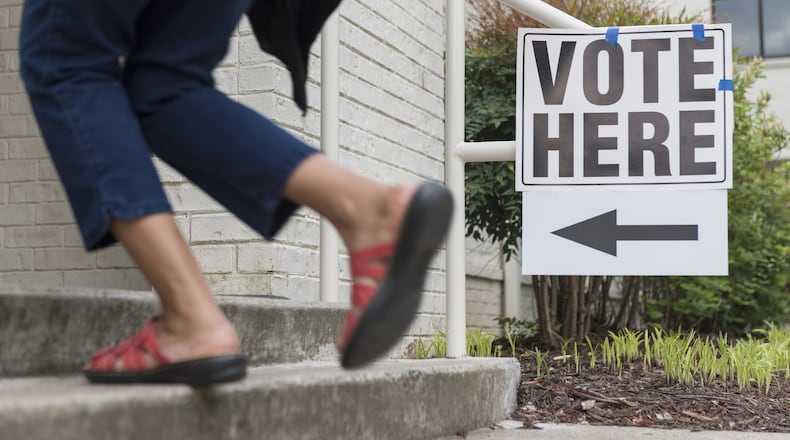President Donald Trump's federal voter fraud panel has committed to paying a standard $250 fee to receive personal data on all of Georgia's nearly 7 million voters.
A spokesman for the Georgia Secretary of State’s Office confirmed Wednesday that at the request of the Trump commission, it has submitted an invoice for the data. It has not yet received payment, which is required of anyone who requests the public voter file and is the final step to receive a disc with the information.
The commission, formed by Trump in May to investigate unsubstantiated reports of voter fraud in last year's presidential election, had sent a request at the end of June for all states' voter-roll data, including the name, address, date of birth, party affiliation, last four Social Security number digits and voting history for each voter.
While officials from a number of states opposed the request and called it overly broad, a majority indicated they would send at least partial responses. Georgia was among them, although it also required that the commission pay the fee.
Georgia law allows it to collect and publicly share information such as voter names, addresses, race and gender — information that more than 600 groups including both major political parties have also requested from the Secretary of State’s Office in the past 18 months.
Georgia will not share information, however, considered private under state law such as registered voters' driver's license numbers, Social Security numbers, phone numbers or email addresses.
The public file does not show party affiliation because voters in Georgia are not required to declare one. It does show, however, whether voters requested party-specific ballots during primary elections.
Civil rights groups including those in Georgia have raised alarms about sharing the data, saying they fear the collected information could be used to purge voting rolls and make it harder to register to vote.
“Our position is, and remains, that the collection of voter information on a national scale creates serious violations” of federal privacy laws passed in the wake of Watergate, said Sara Henderson, the executive director of Common Cause Georgia.
About the Author
Keep Reading
The Latest
Featured



